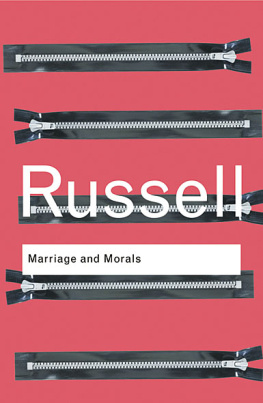

Copyright 2015 Eric Berkowitz
All rights reserved under International and Pan-American Copyright Conventions. No part of this book may be used or reproduced in any manner whatsoever without written permission from the publisher, except in the case of brief quotations embodied in critical articles and reviews.
LIBRARY OF CONGRESS CATALOGING-IN-PUBLICATION DATA
Berkowitz, Eric.
The Boundaries of Desire: Bad Laws, Good Sex, and Changing Identities / Eric Berkowitz.
pages cm
1. SexSocial aspects. 2. Sex customsHistory. I. Title.
HQ21.B547 2015
306.7dc23
2015005123
COUNTERPOINT
2560 Ninth Street, Suite 318
Berkeley, CA 94710
www.counterpointpress.com
Distributed by Publishers Group West
10 9 8 7 6 5 4 3 2 1
e-book ISBN 978-1-61902-646-9
AS ALWAYS, FOR JENNIFER
CONTENTS


Some aspects of existence, such as the speed of light, dont change. Others, such as our bodies, are in continual transformation. Still others remain constant but are subject to ever-changing perceptions. Sex falls into this last category. The act of reproduction and all its variants have been practiced in roughly the same ways since the beginning, but our views about the meaning and consequences of sex are in perpetual flux. Those beliefs determine the way we judge and punish the sex of others.
Lawmakers have always set boundaries on how people take their sexual pleasures. At any given point in time, everywhere, some forms of sex have been encouraged while others have been punished without mercy. Todays sacred truths often become tomorrows hateful prejudices, and vice versa. Jump forward or backward a few decades, cross a border, or traverse social classes and the harmless fun of one culture becomes the gravest crime in another. Because the sexual urge burns at the intersection of existence, identity, and power, it has always carried outsize significance. Whom we make love to, how we do it, and why are among the laws central concerns. The personal is political was a common feminist refrain in the 1960s and 1970s. Sexthe quintessentially personal activityhas always been political.
Over the past hundred-plus years, nearly every aspect of Western sexual morality has been turned on its head. With the expansion of womens rights and gay rights, the decriminalization of birth control and abortion, and effective treatments for most venereal infections, sex is now less risky for more people than ever before. In many ways, the law in the US and much of Europe has kept pace with these changes. No longer are adultery, fornication, or homosexuality treated as crimes, and while those who have sex with people of a different race still face social stigma, they cannot be driven from their homes or put in jail. Even within the home, the rules have transformed. Men recently lost the right to rape their wives and broad domestic violence laws have given women and children unprecedented protection from sexual aggression in the very place where it happens most often. At the same time, sexually oriented reading or viewing materialwhether health information, explicit pornography, or auto-parts advertisements featuring under clad womenare omnipresent, and controls on their dissemination have never been more easily circumvented.
Yet none of this has gone down easily, and as the twenty-first century finds its stride, Western society is still struggling to digest the postSecond World War sexual revolution. The compulsion to control the sex lives of others remains as powerful as the yearning for sex itself, and with each unfastening of sexual restrictions have come other, sometimes fearsome restraints. While sex can be more safely pursued now than in previous centuries, and a rewarding sex life has become an essential condition for personal fulfillment, the age-old dread of sexual desireas destructive of both the individual soul and the well-being of societyhas not diminished. Sex is always something we cant controlwe have to defend against it.... Why? Because sex is really penetrating inside everyone. This quote comes from a scholar explaining the strict separation of sexes among Orthodox Jews, but it also captures an enduring principle of secular sex law. At both the left and right ends of the political spectrum, the view persists that sex is uncontrollable and dangerous.
Sexual transgressions are seen as harmful both to the victims and, by extension, to everyone else. Ones activities in the outside world can draw mixed opinions, but those who have forbidden sex often find they have no allies. That is why charges of sexual misbehavior are so commonly used to neutralize enemies and troublemakers. The black boxing champion Jack Johnsons victories over white opponents caused riots, but sex trafficking charges drove him out of the US in 1913. Martin Luther King Jr. was one of the FBIs main political targets, but when the bureau failed to link him to criminal or communist conspiracies, it turned to sex: in 1964, with evidence of Kings rather unremarkable adulterous affairs in hand, the FBI wrote to him threatening to expose his evil, filthy, psychotic, animal, and hideous orgies. Telling King he was now finished, the letter counseled suicide: King, there is only one thing left for you to do. You know what it is. In 2010, Julian Assange became a hero to some and a villain to many others when his WikiLeaks website published reams of classified US documents. However, it was not his political subversion that forced him to take refuge in the Ecuadoran embassy in Londonit was the risk of extradition to Sweden on the thinnest possible sex-crime charges.
The sex smear has become a reflexive device to discredit people, even the long dead. In 2013, during a bone-dry conference discussion on the government-deficit theories of the British economist John Maynard Keynes (18831946), Harvard historian Niall Fergusonno fan of Keynesian economicsdismissed Keynes as a childless gay man who couldnt satisfy his wife and who had no concern for the impact of his theories on posterity. (This charge had already been a staple of conservative academic thought for decades.) Economics is indeed a dismal science, but when it gets too dreary, even highbrow academics are not above a little gay bashing. Nor are liberals. Take the oft-repeated canard about FBI director J. Edgar Hoover prancing around a New York hotel suite in a frilly dress, high heels, and a wig. The story, as homophobic as any coming from conservatives, is relished by the lefteven by those who know better. New York Times columnist Frank Rich, for example, admitted that [t]here is no solid proof of the delicious rumors about Hoover, but he could not help adding: But we can dream, cant we? Of course we can, and we do, because sexual slander works. As the proprietor of piles of dirt about his enemies sex lives, and as the centurys most sanctimonious morals enforcerno mean feat, given the competitionHoover knew this as well as anyone. One need not be accused of something as serious as rape to be brought down; succumbing too readily to the call of the libido is often enough.
Next page












